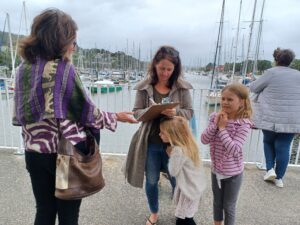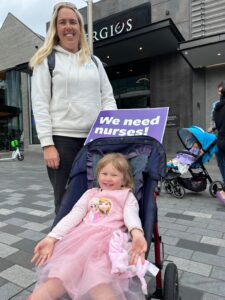Over 2000 nurses, health care workers and supporters turned out at rallies around the country in a National Day of Action on Saturday.
As winter and associated illnesses are imminent, nurses and health care workers are raising the alarm about the chronic short-staffing throughout the health system.
Among them was registered nurse (RN) Madel Manzano from an aged care facility in Whangārei, who passionately described the exhaustion and desperate understaffing she and other nurses face.
“This morning I was feeling really low, but my spirit said to me: maranga mai Madel, so I came here to be with you all.”
Manzano said she was sometimes responsible for 76 patients as the only senior nurse on a shift.
“You would probably think how would I manage that – and on call overnight. You work five days and are on call because there is no nurse (rostered) during the night.”
Manzano asked those at the rally who would help to fix the crisis.
” . . . the Minister of Health, the Minister of Finance, the Prime Minister? It is time, because it’s voting time, they need to hear us.”
Representing providers from every sector – hospitals, primary health care, aged care, and Māori and iwi providers – members gave up Saturday activities to demand fixes to the broken health system they are working in.

A petition – ‘We need nurses’ – asking political parties to fix the nursing shortage was launched on the same day and had recieved over 7000 online signatures by Tuesday morning.
It calls on political parties to commit to:
- 4000 more nurses trained and on the job
- pay that values the nursing workforce right across the health sector and attracts more nurses
- te Tiriti being upheld across our health services to remove inequities
At the Wellington rally, Hutt Hospital nurse Kathy Ward said there were “never enough of us”, her colleague Rebecca Wilton adding that more nurses needed to be trained.

Child health RN Sally Jane said she was at the Christchurch rally to demand the Government fix the dire nursing shortage with paid training and a bonding programme for graduate nurses.
“We just need more nurses – and midwives.”
Many of her young, high-needs patients needed to be in hospital regularly, and Jane said the ward was always under-staffed.
She was very concerned about the increase in winter illnesses, and especially the spectre of a whooping cough outbreak.
“And we know measles is going to be a disaster because the immunisation rates are so low.”














